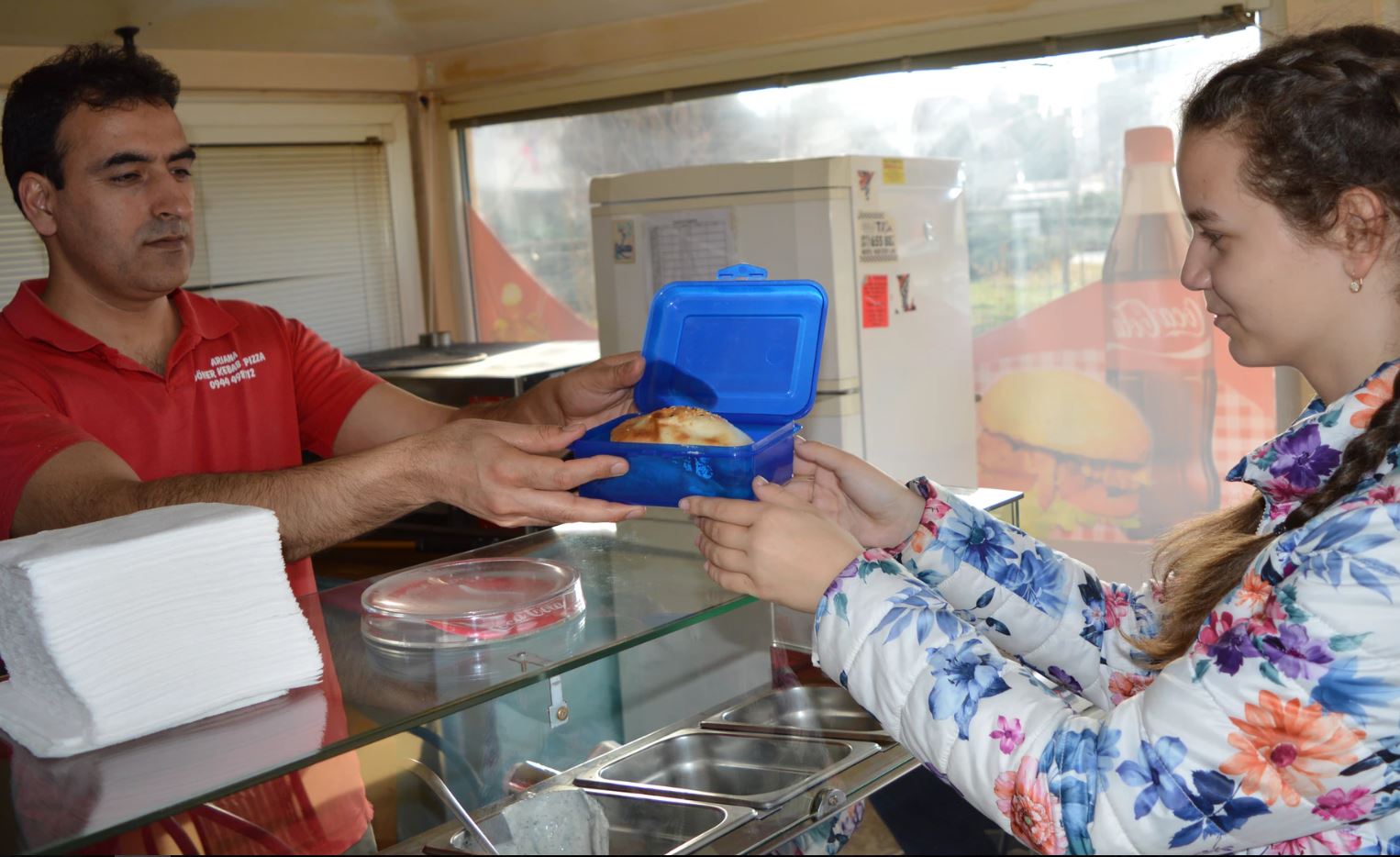YRE Competition 2017
Litter Less Campaign
11-14 years
Fast food restaurants, takeaways and food delivery services produce a considerable amount of disposable packaging. All the wrapping ends up in landfills or in incinerators. Students from Majcichov decided to examine the local situation and encourage takeaway businesses to come up with an environmentally-friendly alternative.
Slovakia still produces large amounts of communal waste. According to the European Commission, it is 475 kg of waste per capita. Within the European Union, Slovakia and Malta have the lowest recycling rates. About 75% of communal waste ends up in landfills, much more compared to most EU countries. Part of the problem is also disposable food packaging.
FRANCE BANNED DISPOSABLE DISHES
France is the first country in the world that has decided to ban the use of disposable plastic dishes. The ban on all plastic dishware will go in effect in 2020. According to the new French law, all disposable products will have to contain at least fifty percent biodegradable material, meaning that the dishes will be compostable at home. Later on, this share will go up. However, some companies are against this law. Their biggest concern is that consumers will throw the packaging “behind their courtyard”, as it should be easily biodegradable.
WILL SLOVAKIA FOLLOW THE EXAMPLE OF FRANCE?
Students addressed the Ministry of the Environment of the Slovak Republic (MoE SR) with a question if a similar policy as in France is being considered: "The Ministry of the Environment does not consider any legal steps to ban the use of plastic utensils and dishes at the moment. The MoE finds plastic dishware a good and convenient household item for some occasions,"said Svetlana Oresi from the Law and Legislation Department of the MoE. The students also asked for recommendations on disposing them: "Used plastic dishware should be placed in yellow bins. Plastic waste is recyclable and there are recycling companies in Slovakia that process such waste," Mrs Oresi added. She also stressed the need for educating of people to use environmentally friendly products.
Students, however, have a different experience with plastic dishware disposal. According to the website of FCC Trnava, a local company in charge of collection and disposal of the municipal waste, disposable plastic dishes should not be sorted out for recycling. This instruction is also included in the leaflet for good sorting out practice, distributed by the company to each household in the region.
HOW ABOUT TAKEAWAYS IN THE TRNAVA REGION?
Students surveyed the attitude of takeaways and food delivery services in the Trnava region. Although there exist substitutes for plastic disposable packaging on the market, companies do not use biodegradable packaging, even if a customer would ask for it. However, two companies - ESO Motorest in Vlčkovce and Ariana Dönner Kebab & Pizza in Trnava – are open to change. Based on the students´ initiative, they are now willing to meet the customer´s wish, and they pack the take-away food into a lunchbox brought by the customer.
EXAMPLES OF GOOD PRACTICE FROM AROUND THE WORLD
In Portland (Oregon, USA), the GoBox project has been launched. Its goal is to provide customers with an opportunity to buy food without having to bring their own boxes. With the GoBox app, people search for restaurants that are involved in the project. After they finish their lunch, they leave the packaging at the designated places where it is picked up by bicycles and taken to be washed. This project has spread to California, too.
The German company Leaf Republic has started to produce plates made of leaves. A good point is that no adhesives or chemical additives are used for their production. However, the raw material for plates is imported from India. The processing is finalized in Germany, and the result is a plate that decomposes in compost or in a landfill in four weeks. Now it is a challenge for German farmers to start growing new plant species.
CHANGE IS POSSIBLE. SO WHY HESITATE?
Written by students from Slovakia.

